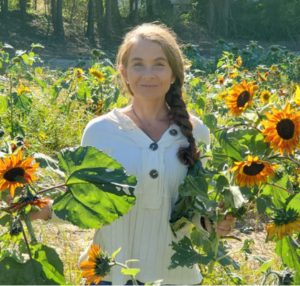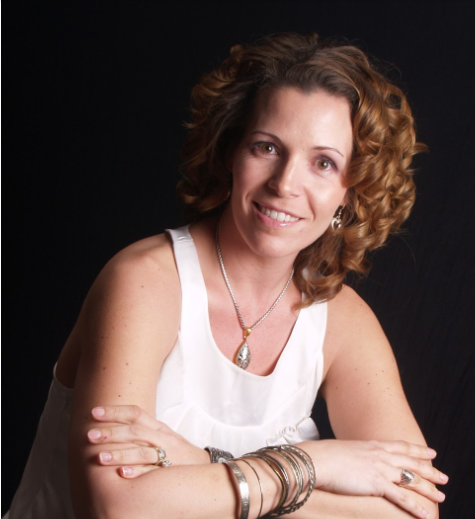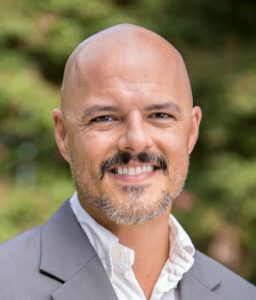This is a guest post by one of our certified health coaches, Emily Burrows. UNCG Health Coaching recognizes that there are a diversity of opinions about this issue, and encourages thoughtful discussion that helps us learn to be better coaches. The second part in this two-part series is now online: Coaching Beyond the Scale.
What if Weight Loss Doesn’t Make our Clients Healthier?
“I know if I just lose weight, everything will be better. My energy, blood pressure, fitness, confidence, relationships, family life, all of it. Every time I’ve lost weight I’ve felt better. I’m just too lazy to keep it off!”
Have you heard some version of this from a coaching client, friend, or even said it yourself? A lot of Americans, including our clients, see their weight as a major roadblock to health and wellbeing.
By the time they come to us, many of our clients are pretty experienced at losing weight. Many of them have been dieting on and off for years, decades, or even as far back as adolescence.
Yet, despite best intentions and a lot of hard work, they may have lost the same 10 pounds over and over again, sometimes regaining more weight than they lost on their diet.
Often, on the other side of each “weight loss journey” and weight regain are feelings of failure and shame. They’ve sunk time and effort and money into meal planning, carb counting, food diaries, gym memberships, weight loss programs, trainers, nutritionists, and lifestyle overhauls, and feel there’s very little to show for it.
Even though this cycle of weight loss, weight gain, and shame happens to the majority of folks who intentionally lose weight, instead of blaming the diet, they blame themselves.

Naturally it feels like helping our coaching clients get better at losing weight would be a good thing. After all, with weight loss we anticipate more respect, safety, economic security, social capital, and ultimately, health.
The medical and public health community, the $66+ billion weight loss industry, the media, and nearly every other corner of our culture have promised that sustaining intentional weight loss is doable and leads to improved health. However, what if these promises aren’t backed by research?
It’s possible that you’re saying to yourself, “That might be true, but my client still needs to lose weight for their health. I know I can help them!”
Before you jump into helping your client craft another weight loss goal, take a moment to consider the following:
Out of all people who intentionally lose weight, 95-98% regain it within 5 years.
The probability of sustained weight loss doesn’t increase based on their reason for dieting, even if the reason is a health problem. Yikes. Plus, up to 2/3 of those who regain the weight, gain more than they lost. Which is no wonder when you consider that body shame, a typical part of the dieting cycle, can cause weight gain (and worse health)!
It might still be tempting to try to be one of the rare 2-5% who keep the weight off long-term, except that:
Intentional weight loss doesn’t necessarily lead to better health.
It’s no secret that dieting can be a drag. To add insult to injury, weight loss doesn’t necessarily make you healthier. When people in larger bodies lose weight, they don’t acquire the same health outcomes of folks who were thin to begin with. Weight cycling, which is common among folks who diet, is closely linked to increased risk of diabetes, heart disease, osteoporosis, and more. Worse, studies show that when folks in bigger bodies lose more than 5% body weight, they’re at an increased risk of early death, even if the weight loss was intentional.
People in larger bodies who intentionally lose weight can have worse health outcomes than those who change their behavior without losing weight.
Dieting takes a toll on mental, social, and emotional health.
It’s hard to feel carefree when you’re hungry! Although we’re promised better quality of life, happiness, and confidence with weight loss, intentional weight loss efforts are associated with higher levels of anxiety and depression. Many of the rare people who maintain significant weight loss beyond 5 years show symptoms of disordered eating, exercise obsession, body preoccupation, and/or atypical anorexia.
As wellness coaches, our priority is helping clients improve their health and overall wellbeing. Intentional weight loss not only doesn’t improve health, it can cause harm.
Want an alternative to dieting? The health benefits we usually associate with weight loss can be achieved by behavior change (in the absence of weight loss), with less risk to our clients.
The Health at Every Size movement rejects weight-centered health promotion and instead emphasizes size diversity, embracing all facets of your wellbeing (not just physical health), eating based on internal cues, and enjoyable physical movement.
People who practice Health at Every Size accept and feel better about their bodies. They enjoy many of the health improvements we anticipate with weight loss, like lower blood pressure and increased insulin sensitivity. They’re also more likely than dieters to take better care of themselves and their bodies long-term.
Rejecting weight as the barometer for health goes against the status quo! Fortunately, there’s a growing community of coaches, doctors, therapists, nutritionists, and other healthcare providers who are committed to weight-neutral health promotion.
Look for part 2 for tips you can use in your coaching practice to help your clients (and maybe even yourself) prioritize wellbeing without the scale.
Emily Burrows is a self-care coach and yoga teacher in Chapel Hill. She has her MPH from UNC-Chapel Hill but stays forever loyal to UNCG, where she completed her health coaching certificate and bachelor’s degree.
www.emilyburrows.com
Facebook



 In May 2018, I graduated with my master’s in public health from UNC Greensboro. This time in my life was exciting, but also horribly stressful. Finding a job was a daunting task. I applied to several positions, went on numerous interviews, and even took a job with a temp agency for a while. I was working outside of my field of study, and although I was happy to have a job, I was certainly not happy with how things were going. Luckily, throughout my time as an MPH student, I had built a personal relationship with UNCG Health Coaching. As a graduate assistant with HealthyUNCG, we had worked closely with the health coaching program and their co-directors, Regina and Dan.
In May 2018, I graduated with my master’s in public health from UNC Greensboro. This time in my life was exciting, but also horribly stressful. Finding a job was a daunting task. I applied to several positions, went on numerous interviews, and even took a job with a temp agency for a while. I was working outside of my field of study, and although I was happy to have a job, I was certainly not happy with how things were going. Luckily, throughout my time as an MPH student, I had built a personal relationship with UNCG Health Coaching. As a graduate assistant with HealthyUNCG, we had worked closely with the health coaching program and their co-directors, Regina and Dan.
 xperience previously working as a full-time health coach, Jenita knew that adding health coaching to the menu of services offered by Norton Children’s Hospital could be beneficial for their patient population. As the Health and Wellness Manager, Jenita conducts consultations with providers at several pediatric offices to provide patient services that address topics like injury prevention, health education, and nutrition. In her position, Jenita saw the possibilities health coaching could provide to supplement observed needs. Although she is still fine-tuning health coaching into Norton Children’s services, Jenita has already noticed how difficult it can be to reach the families who could benefit the most from coaching. Jenita recognizes and appreciates the advantages of health coaching. She has even integrated her skills as a coach into her parenting style, allowing her young children to problem solve and devise solutions on their own. However, in the case of her patient population, families are often facing barriers that overshadow the possibility of coaching.
xperience previously working as a full-time health coach, Jenita knew that adding health coaching to the menu of services offered by Norton Children’s Hospital could be beneficial for their patient population. As the Health and Wellness Manager, Jenita conducts consultations with providers at several pediatric offices to provide patient services that address topics like injury prevention, health education, and nutrition. In her position, Jenita saw the possibilities health coaching could provide to supplement observed needs. Although she is still fine-tuning health coaching into Norton Children’s services, Jenita has already noticed how difficult it can be to reach the families who could benefit the most from coaching. Jenita recognizes and appreciates the advantages of health coaching. She has even integrated her skills as a coach into her parenting style, allowing her young children to problem solve and devise solutions on their own. However, in the case of her patient population, families are often facing barriers that overshadow the possibility of coaching.  et Brett Bowers and hear him speak about his work as a health coach often respond with furrowed brows and tilted heads. The confusion that surfaces when many people hear the term “health coach” is all too common. Many are unsure about why he chooses to identify himself as a coach when he is licensed as a Professional Counselor Supervisor and Clinical Addictions Specialist. The uncertainty of the legitimacy of Health Coaching as a field is not an uncommon notion. However, Brett uses these moments as opportunities for teaching and education. Becoming a Certified Health Coach has assisted Brett in the counseling services he provides to the students at NC Central University’s School of Law. Utilizing the skills and strategies he gained through the certification process has allowed Brett to better navigate his role as a counselor, especially when his clients want to work on issues that are technically out of his wheelhouse. When a student comes in and wants to address topics like physical activity or nutrition, Brett is able to coach his clients through these topics without overstepping the boundaries of his professional expertise.
et Brett Bowers and hear him speak about his work as a health coach often respond with furrowed brows and tilted heads. The confusion that surfaces when many people hear the term “health coach” is all too common. Many are unsure about why he chooses to identify himself as a coach when he is licensed as a Professional Counselor Supervisor and Clinical Addictions Specialist. The uncertainty of the legitimacy of Health Coaching as a field is not an uncommon notion. However, Brett uses these moments as opportunities for teaching and education. Becoming a Certified Health Coach has assisted Brett in the counseling services he provides to the students at NC Central University’s School of Law. Utilizing the skills and strategies he gained through the certification process has allowed Brett to better navigate his role as a counselor, especially when his clients want to work on issues that are technically out of his wheelhouse. When a student comes in and wants to address topics like physical activity or nutrition, Brett is able to coach his clients through these topics without overstepping the boundaries of his professional expertise. 

